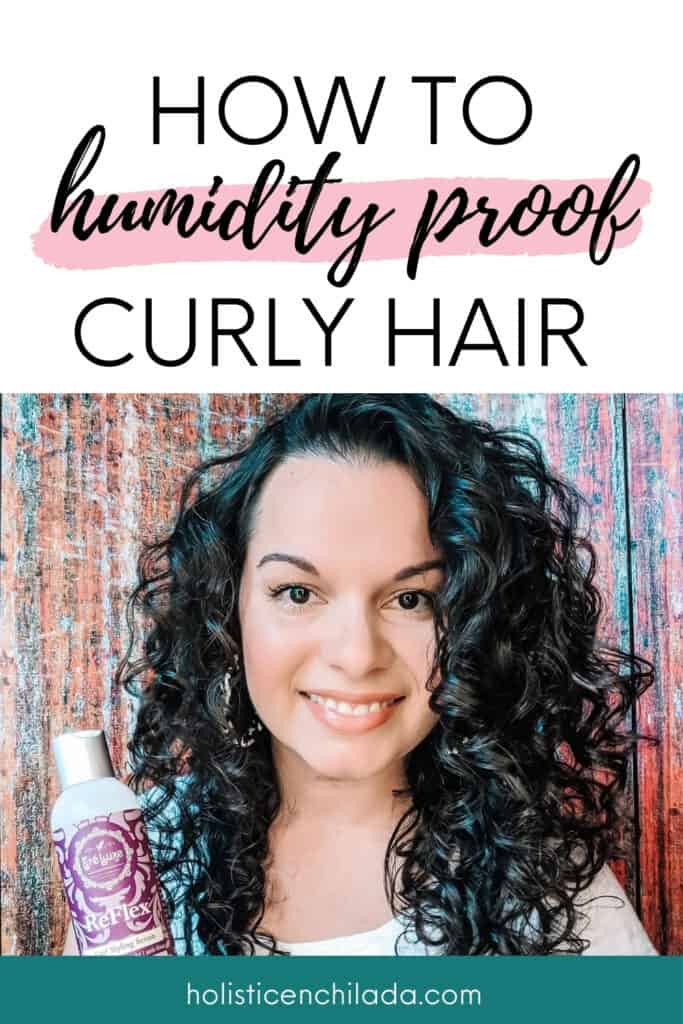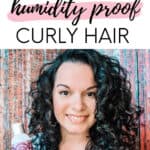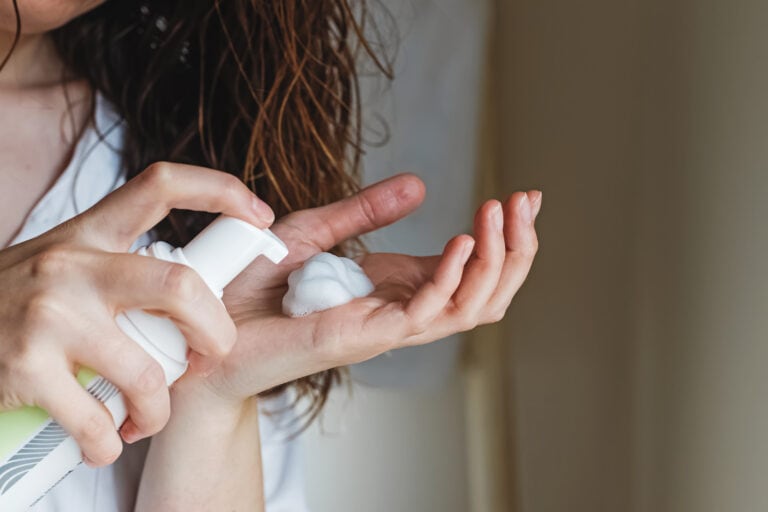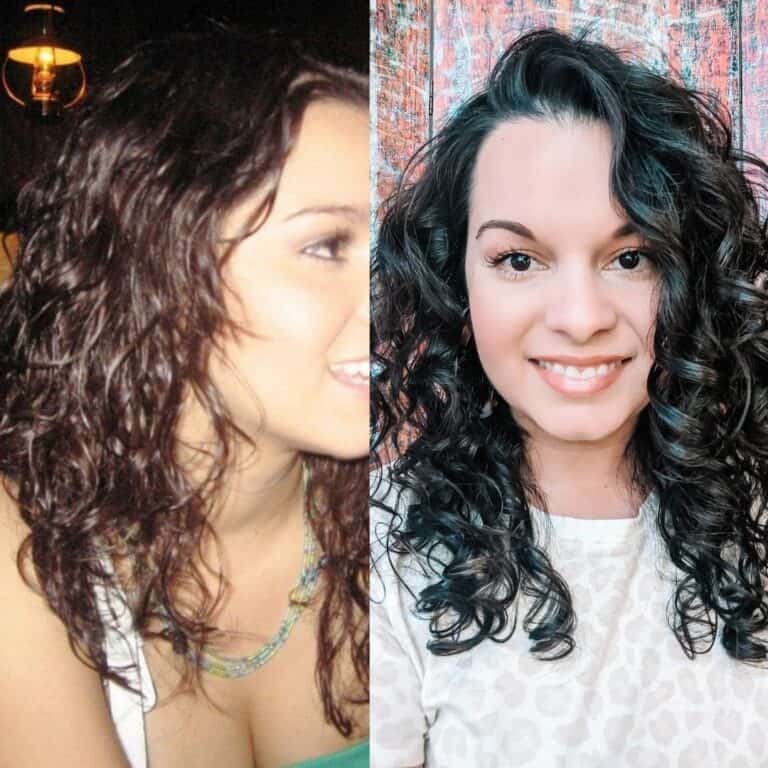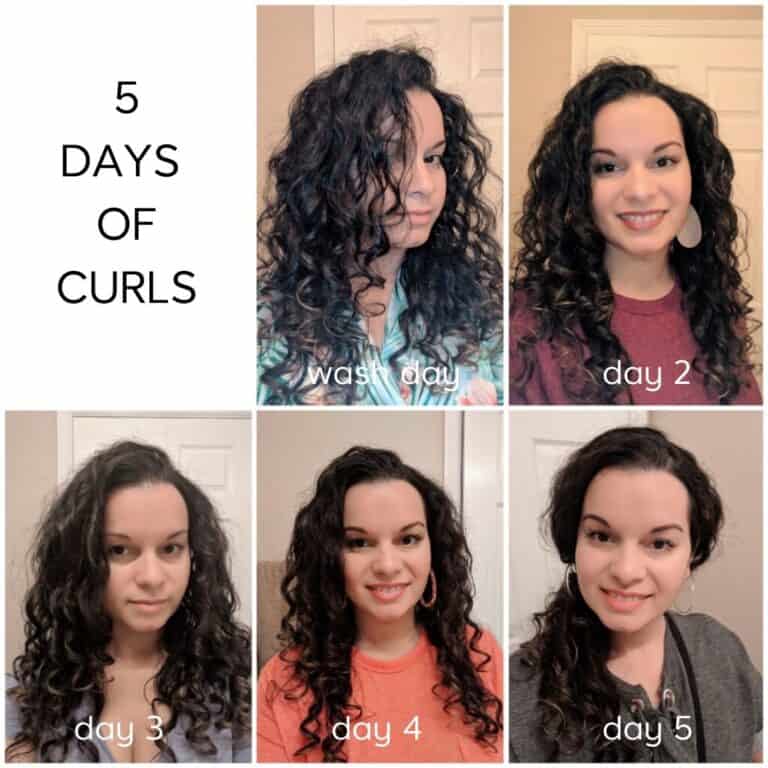How To Frizz-Proof Curly Hair in Humidity
This post may contain affiliate links, and I will earn a commission if you purchase through these links. Please read the disclosure policy for more details.
Dealing with curly hair in humid weather can be quite challenging, but with the right techniques and products, you can keep your curls looking fabulous. Humidity often leads to frizz and unmanageable curls, but with some expert advice and styling tips, you can humidity-proof your hair and rock your natural curls with confidence.
First, it is essential to understand how humidity affects curly hair. Excess moisture in the air can cause your hair to absorb extra moisture, leading to swelling, frizz, and loss of definition in your curls. By using the right products and techniques, you can maintain the moisture balance in your hair, which is vital for well-defined, frizz-free curls.
Here are some proven strategies and tips to help you keep your curly hair looking its best, even in humid conditions. By incorporating these practices into your hair care routine, you can confidently embrace your natural curls, regardless of the weather.
How humidity affects curly hair
Humidity is how much water vapor is in the air. When the environment is humid, our hair tends to absorb moisture from the air which in turn causes swelling and frizz.
In the summer, the dew point is high meaning that the air can hold a lot more water than any other time of year. So this is why the humidity is such a problem in the summer and your hair struggles.
When the humidity levels in the air increase, the moisture from the atmosphere interacts with your hair’s natural texture. This moisture causes the proteins in your hair to form more hydrogen bonds, leading to a change in the shape of your hair strands. As a result, your curly hair may become even curlier or take on a frizzy appearance in humid conditions.
In humid weather, the water molecules in the air can penetrate your hair shaft and disrupt the balance of proteins inside. This disruption weakens the hair structure, causing it to become more prone to breakage and split ends. Your hair’s natural texture can also be affected by this moisture, making it harder to manage.

Humidity-Proofing Your Curly Hair
There are a number of styling products and techniques that can help humidity-proof your curly hair.
Reduce Humectants
Humectants like glycerin may increase frizz during humid months as they pull moisture from the air into your hair. Limit your use of humectant-containing products or switch to ones low in humectants to keep frizz at bay.
There are two type of humectants: common and film-forming. Film-forming humectants form a flexible barrier on the hair and are much safer to use in humidity.
Common humectants include:
- glycerin
- sodium PCA
- honey
- sodium lactate

Use lightweight Moisture
Because there is so much moisture in the air, you won’t need as much in your hair, but you do need some. Even without using humectants your hair will still absorb some of the moisture in the air around it. It’s very easy for hair to get over moisturized in high humidity and dew points.
So you can try skipping the leave-in or using a lot less and see what happens. This works really well for me.
But remember that conditioner seals the hair, so you want to ensure your hair is conditioned enough and not dry.
Use hard hold styling products
Hard hold styling gels will help your curls keep their shape and block out some absorption of the moisture from the air. Just remember to keep it light handed, especially if your hair is fine or thin.
Use emollients/anti-humectants
Anti-humectants are the opposite of humectants. Instead of attracting moisture, they seal the hair to block absorption. They include emollients, which are hydrophobic (don’t like water).
You can try sealing in your style with emollients by scrunching in a few drops of your favorite oil into your hair after styling. I recommend light oils like jojoba and argan oil. My favorite is The Innate Life Rose Hair Elixir.
Some other popular anti-humectants are:
- butters like shea and mango
- oils like coconut and olive
- beeswax, which is not CG approved
These can be heavy though so be careful. And they can build up since they are not water soluble.
Use humidity resistant ingredients
Anti-humidity ingredients are great to block out humidity and provide hold, but they do cause build up. However, they are the most effective at preventing frizz from humidity. I recommend if you use products with these ingredients that you clarify regularly.
Here are some common humidity resistant ingredients:
- polyquats (ployquaternium-4 and others)
- PVA/VP copolymer
- Polyacrylate acid
- other polymers
Layer Styling Products or Try Smasters technique
Layering products can help ensure your hair holds up. I recommend no more than 2 to avoid heaviness and buildup.
If you’re not sure what Smasters is, it’s when you add a small amount of styling product to your hair once it is mostly or fully dry to help seal in the style and get a good cast.
When I do this, I stop diffusing when my hair is mostly dry then glaze and scrunch in some hard hold gel (a small amount) and continue drying.
Include Proteins
Proteins play a vital role in strengthening and maintaining your hair’s structure. Ensure your hair is receiving enough protein through regular deep conditioning treatments or protein-rich leave-in conditioners.
Brush Style
Brush styling leads to extra definition and hold and is one of the best ways to prevent frizz.
The Flip Section Method in the video below is an easy way to brush tyle without spending an hour styling your hair.
Diffuse Dry
Diffusing your hair, even if just for a few minutes, helps lock in your style and activate the styling products so that your hair is less likely to be ruined by external factors.
Just be sure to avoid high heat and don’t diffuse for too long. Once your hair is mostly dry, that’s when you should stop.
Leave your hair in the cast
If all else fails, try just leaving your hair in the cast as long as possible, or don’t scrunch it out 100%.
The cast is the most protective thing for our curls since it basically encloses our hair in a protective layer which forms a barrier to the outside.
Choose the Right Products For Humidity
It’s important to know how to determine if a product will work well in humidity.
The first step is to look at the ingredients list. Let’s have a look at 2 popular gels: Giovanni LA Hold and Shea Moisture Curl Enhancing Smoothie.
Check the top 5 ingredients to scan for humidity-resistant ingredients, humectants, and anti-humectants. A product that works well in humidity should have at least one humidity-resistant ingredient in the top 5. If it has humectants without anti-humectants or humidity resistant ingredients in the top 5, then it probably won’t work well in humidity.
Below is the Giovanni LA Hold Gel. The first 5 ingredients contain an anti-humidity ingredient. Then further down the ingredients list, you can see one emollient. So this is great for my hair because it isn’t full of a bunch of butters and oils, it has an anti-humidity ingredient close to the top, and it’s hard hold. I can see why this is so popular!
Below is the Shea Moisture Curl Enhancing Smoothie. You can see it has glycerin as the 6th ingredient. It also has a lot of emollients, including in the top 5. So this could possibly work for someone who can handle heavy products, but it doesn’t have any anti-humidity ingredients so this one is a toss-up. If it didn’t have glycerin then it would be ok.
A very popular gel for humidity is the Ouidad Advanced Climate Control Stronger Hold Gel, which happens to have glycerin. However, if you scan the ingredients list, you’ll see lots of hard hold and humidity-resistant ingredients, which negates the negative effects of glycerin.
Living in Florida, this gel works really well for me and many that I have recommended it to. So you don’t always need to avoid glycerin, you really just need humidity-resistant ingredients and hard hold.
TWIST Weather Up Gel is another one of my favorites because it has humidity-resistant and hold ingredients so it’s great for humid places.
Troubleshooting Common Humidity Hair Problems
Finding the Right Balance
The key to addressing humidity-related hair problems is finding the right balance of moisture in your hair care routine.
Start by using a sulfate-free shampoo to gently cleanse without stripping away natural oils.
Follow up with a conditioner that has a mix of protein and moisturizing ingredients.
Experiment with leave-in conditioners and different stylers to see which ones work best for your specific hair type.
Some styling products, such as custards, will offer more moisture than others, like mousses. Some hair types can skip leave-in altogether and just use a mousse or gel to style.
Addressing Dry and Damaged Hair
Dry and damaged hair is more susceptible to frizz in humid conditions. If your hair is already dry, try incorporating a deep conditioning treatment at least once per week to help restore moisture and strength. Also, consider using a leave-in conditioner to provide extra hydration and protection against environmental damage.
For damaged hair, look for products specifically designed to repair and strengthen strands, such as protein-rich hair masks or treatments containing natural oils like coconut or argan oil.
Controlling Flyaways and Unruly Curls
Managing flyaways and unruly curls in humidity can be a challenge. The best solution is to apply a styling gel to help hold your curls in place and reduce frizz and use a brush to distribute the product and smooth out each clump. Check out this video where I show you exactly how to do this quickly and easily.
To keep curls defined during the day, try refreshing them with a water, leave-in conditioner, and gel mix in a spray bottle. Avoid touching your hair too much, as this can lead to more frizz and breakage.

Frequently Asked Questions
What are the best anti-humidity products for curly hair?
There are numerous anti-humidity products available for curly hair. Check out this post on the best anti-humidity products for curly hair.
Which hair oils work best in high humidity?
In high humidity, lightweight hair oils are recommended as they can help control frizz without weighing your hair down. Examples of such oils include argan oil, jojoba oil, and grapeseed oil. These oils can be applied sparingly to damp or dry hair, focusing on your ends or problem areas. Remember, a little goes a long way, so start with a small amount and add more if needed.
How can I protect curly hair from humidity naturally?
One way to protect curly hair from humidity naturally is by regularly deep conditioning. This helps to keep your hair moisturized and less prone to frizz.
Additionally, using proper hair care techniques like finger-detangling, washing with sulfate-free shampoos, and drying your hair using a microfiber towel or a t-shirt can help reduce frizz.
Is fine curly hair more affected by humidity?
Fine curly hair is often more susceptible to humidity due to its thinner structure. It can be more prone to frizz and lack of definition in humid conditions.
However, this doesn’t mean that individuals with fine curls can’t enjoy bouncy, defined curls in high humidity. Using lightweight hair products with humidity-resistant ingredients and a hard hold can help improve the appearance of fine curls in humid weather.
Can humidity lead to damage in curly hair?
Humidity can lead to frizz and cause your curls to lose definition. While occasional frizziness may not necessarily result in damage, continuous exposure to humidity without proper hair care can cause curly hair to become more prone to breakage and damage. Implementing adequate moisturizing and styling techniques, along with using anti-humidity products, can help protect your curls from potential damage in humid conditions.
Conclusion
During humid weather, your curly hair might become more unmanageable and frizzy. This is because the increase in humidity affects the protein structure of your hair, causing it to absorb more moisture from the air. The excess moisture leads to hair strands swelling, which disrupts the cuticle and results in frizz. Understanding the science behind hair structure can help you find ways to maintain your curls in humid conditions.
To protect your hair from humidity, it’s important to keep your hair moisturized and use products with humidity-resistant ingredients. This will help create a barrier against the extra moisture in the air. You can also use anti-humectant and hard hold products designed for curly hair, which may reduce frizz and improve manageability.
Additionally, understanding the relationship between dew point, humectants, and humidity for curly hair can help you select products with the right ingredients for your hair type. Humectants, which help attract moisture to your hair, can be helpful in low-humidity environments but may cause increased frizz in high-humidity settings. Thus, picking the right hair products and adjusting your hair care routine accordingly will make it easier for you to manage your curls in any weather.
